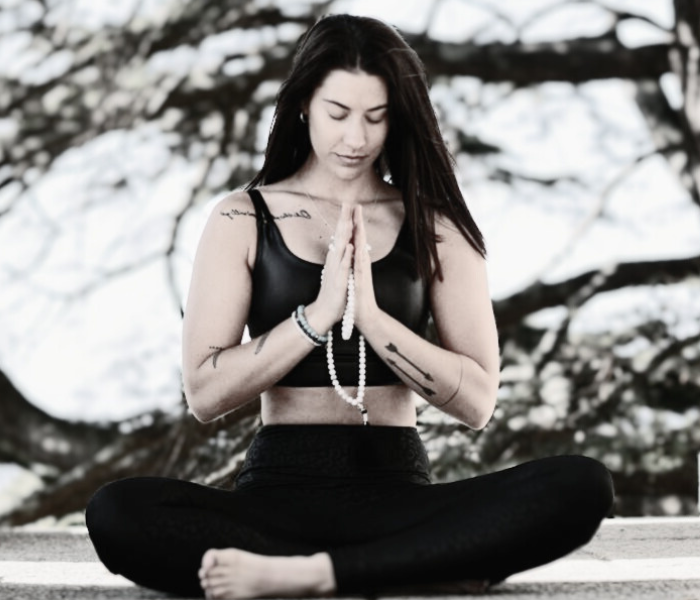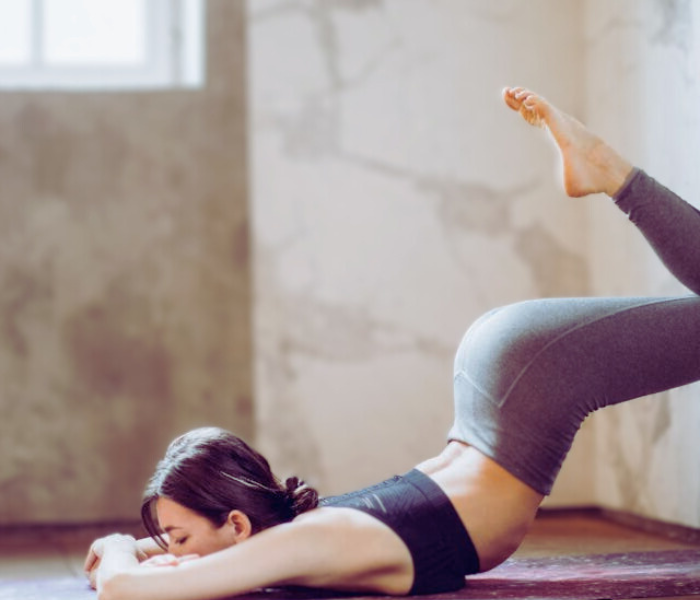runner’s knee and yoga

recovery routine for runner’s knee pain
If you are a dedicated runner, or even just occasionally take part in high-impact exercise, then it is likely you are no stranger to what is commonly referred to as ‘runner’s knee.’ Anterior knee pain can be a difficult injury to live with if you are usually an active person, as the path to recovery is not always straightforward.
However… As stretching is an essential part of both preventing and healing runner’s knee, many sufferers credit yoga as an important part of their therapy.
Convincing burly runners and athletes to take up yoga is not always the easiest task, but the benefits for those who do include it as part of their weekly exercise routine are undeniable.
You can find a collection of the most popular yoga classes designed specifically to target the muscles used most by runners, namely the core, quads, hamstrings, hip flexors, and calves, in this specific yoga package. A series including 9 yoga classes to be done before and/or after a run to help lengthen and stretch tight muscles caused by running. (you can even do the classes on-off days!)
If you need a little more convincing, here are just some of the ways you can use yoga to both prevent and heal injuries like runner’s knee.
Stretching is a simply good form
Runners’ Knee is actually not a well-understood condition, and there are several theories as to the cause and nature of the injury. The most basic symptom is most obviously knee pain, leading most experts to assume the problem lies in how the kneecap and the femur interact. This area of the body is covered in an intricate layer of muscles, ligaments, and cartilage—all of which can benefit from a good stretch. Here is where yoga comes in: yoga is all about stretching and movement, making it great not only to loosen up healthy muscles but also to gently re-work injured ones too.
Yoga is easy to fold into your recovery routine
It is important to consult your doctor or physical therapist about any change in your recovery routine, even if it is as simple as factoring in some yoga and stretching. Not all knee injuries are alike, and a medical professional will be able to better advise you on the level of physical activity that is likely to benefit your injury. Once you have the go-ahead however, it should be easy to figure out how to make an easy yoga stretching routine work for you.
There are plenty of yoga apps and websites to give you a start, and most gyms nowadays also offer sessions. In addition to using the appropriate fitness equipment in your recovery routine, you should also think about folding in some yoga—even if it is just a series of quick stretches.
It is not just the knee you need to think about
It might sound counterintuitive, but often the best way to solve the runner’s knee is not to focus on your knee itself, but the hips as well. Properly aligned hips will help ensure that your knees track and are not being forced to move in unnatural ways, which irritates the muscles and cartilage in the surrounding area.
As noted in this excellent article by Yoga Journal, hip adductors are an often ignored muscles that are sometimes comparatively weak when compared to nearby muscles like the quadriceps due to the nature of most popular exercises. Strengthening your hip adductors can not only help improve your running posture but also help various other health problems like a bad back.
Yoga is almost exclusively the best way to strengthen your hip adductors, as experts tend to agree that the overuse of hip abductors/adductors machines at the gym is more harmful than helpful. Instead, yoga poses like the extended triangle pose or wide-legged forward bend can help you work on getting these muscles strong naturally—and without too much effort.
You don’t need to be super flexible
Many people avoid yoga because they assume you need to be as supple and flexible as an acrobat in order to enjoy it. As a matter of fact, yoga can be enjoyed by everyone, no matter the level of flexibility. All you need to enjoy yoga is an open mind and a willingness to push yourself outside your comfort zone. From there, recovery will not be far off!
Read next >> teen run club participants take up yoga to complement their training



